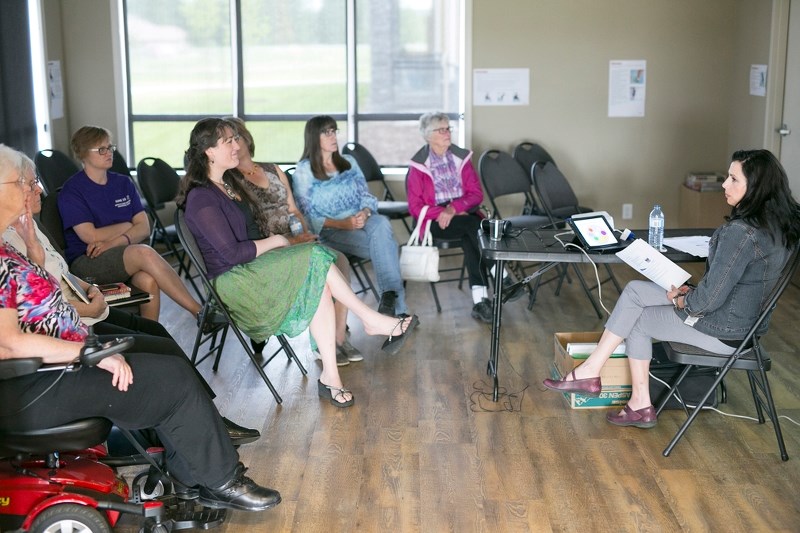The Greenwood Neighbourhood Place Society was among numerous community organizations in the province to recently receive funding to combat elder abuse.
Roughly $61,000 in funding for 2017-18 was allocated to the non-profit group to support the efforts of a project coordinator who will work with a committee to develop a coordinated community response customized specifically to Sundre and the surrounding area.
A long-term goal is to establish a self-sustaining program supported by cross sector community collaboration with partners, said Shoshannah Brechtel, the project coordinator hired to launch the initiative following a successful grant application in 2015-16.
"The idea is to establish a solid foundation that will endure beyond the initial grant funding," she said.
Among the first steps is to define precisely what elder abuse in the Sundre area looks like, she said, adding that identifying focal points will require a coordinated effort among local agencies and community partners regarding what kinds of issues they're seeing.
"Without common language, any sort of response will be fragmented."
Another ultimate goal is to equip every business in town that serves seniors with the tools required for employees not only to identify elder abuse but also to have avenues to pursue so as to intervene or prevent such situations from persisting, she said.
Senior abuse tends to largely go unreported because perpetrators are often relatives, which is why getting the community involved is so important, she added.
Several informational presentations were recently organized in conjunction with Seniors Week as well as World Elder Abuse Awareness Day to start getting members of the community thinking about ways to mitigate the mistreatment of seniors, which most often is subtle, such as mental or financial manipulation as opposed to more obvious signs like bruises from physical abuse.
Trish Whyte, a stakeholder engagement advisor with the Ministry of Seniors and Housing, recently provided some information at the Mountain View Seniors' Housing facility's drop-in centre during a presentation called Taking Action Against Elder Abuse.
The subject of elder abuse is not an easy discussion to dive into, but one that must nevertheless be talked about to raise awareness and understanding, she said during the June 15 discussion.
"It's a serious social and public health issue. It undermines a senior's independence, their dignity and sense of security. It damages lives and destroys relationships in the process."
Ignoring signs of elder abuse makes a person as complicit as the offender, Brecthel said.
"There are no fence-sitters. If you don't do something about it, you're siding with the perpetrator," she said.
According to the Alberta Council on Aging, warnings include elders who exhibit signs of confusion, depression or anxiety, unexplained injuries or fear of certain individuals, changes in hygiene as well as fear or worry when discussing money.
Whyte pointed out that the government's definition of elder abuse is "any action or inaction by self or others that jeopardizes the health and well being of an older person."
Financial abuse or exploitation is the most common kind of elder abuse, but there are other forms including emotional, physical, and neglect, she said, adding that failure to provide the necessities of life is part of Canada's Criminal Code.
"There is help within your community. The first step is to tell someone," she told the group of less than a dozen people.
"Sundre is very lucky to have a coordinated community response model hereÖit's great that you guys have that ó not all communities have that."
Other groups that have also partnered with GNP to establish the coordinated community response include but are not limited to Chinook Arch Victims Services Society, Peaks to Prairies Primary Care Network, the Sundre RCMP, the Sundre and District Historical Society as well as numerous managers from local businesses and organizations.
Sundre is the first municipality in Mountain View County to receive this grant, and the local model could potentially spearhead what similar initiatives in the surrounding region might resemble in the future, said Brechtel.
Anyone with questions or concerns is encouraged to contact GNP at 403-638-1011.



